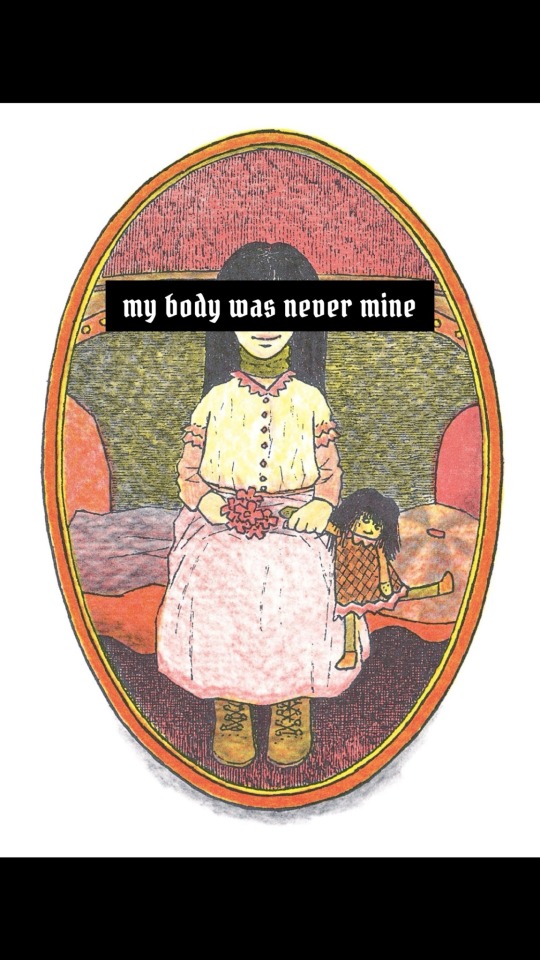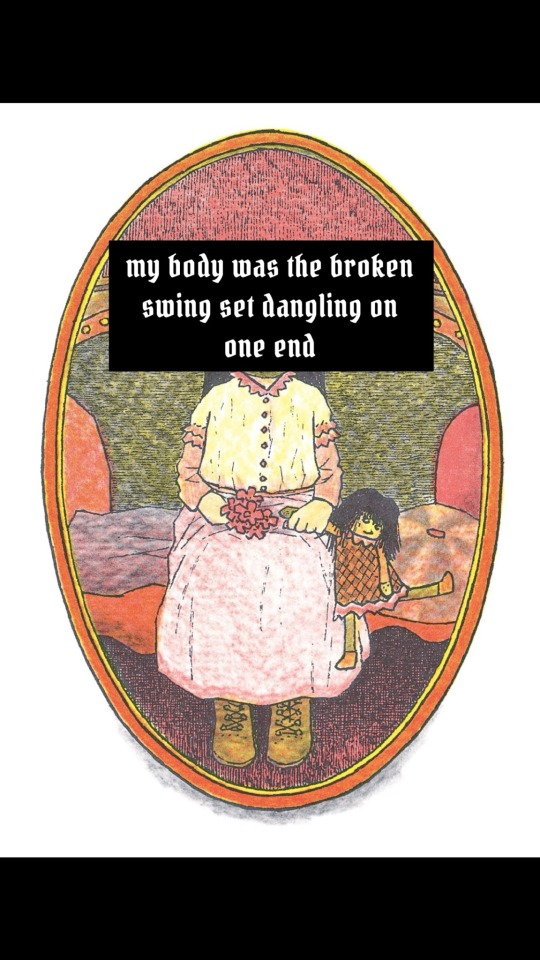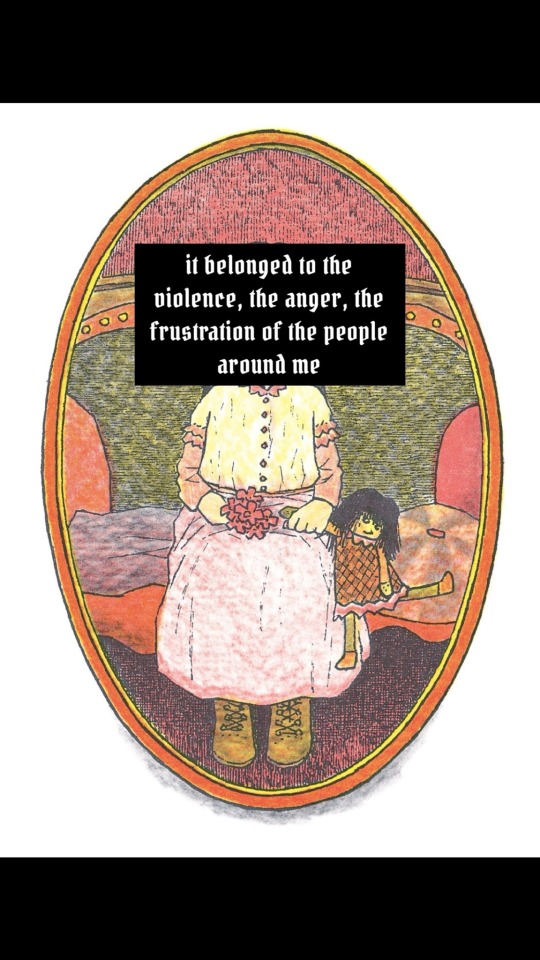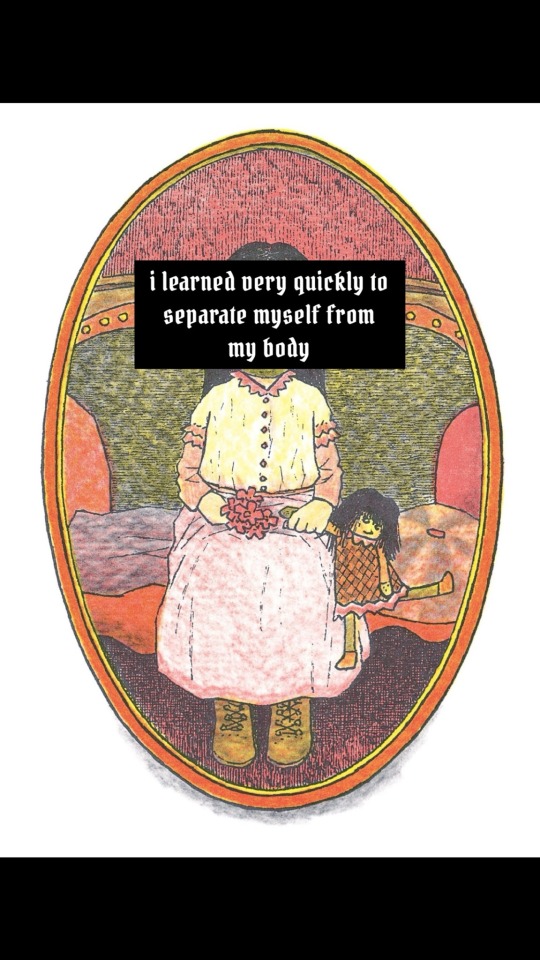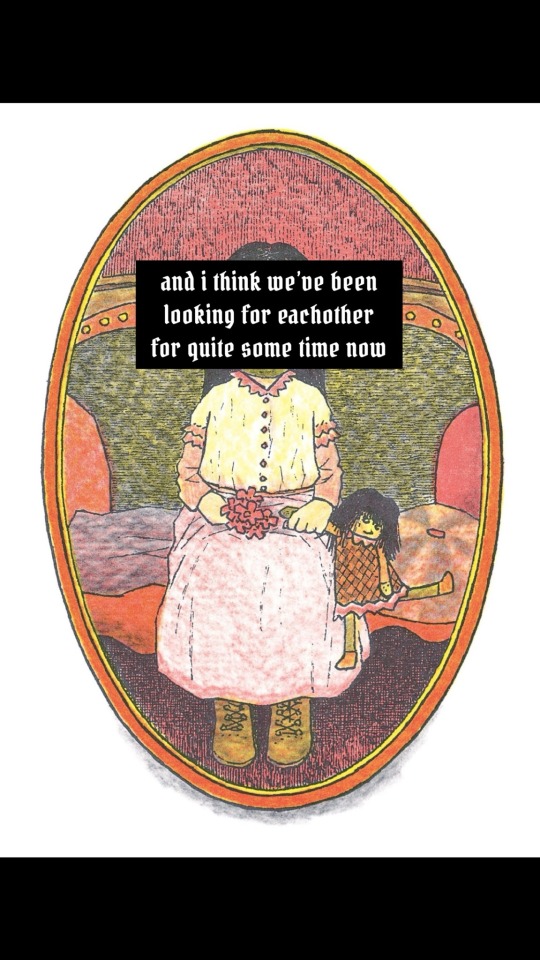#cptsdhealing
Text
*through tears* I BELONG HERE. ON THIS EARTH AMONG OTHERS. I BELONG JUST AS MUCH AS THE NEXT PERSON. I DESERVE TO BE ALIVE. I AM JUST AS GOOD AND BAD AS EVERYONE ELSE. I DESERVE TO BE LOVED. I DESERVE TO BE FREE.
#mental health#healing#recovery#self love#love#body neutrality#body image#depression#suicide tw#trauma recovery#trauma symptoms#traumatic childhood#trauma#cptsd recovery#cptsdhealing#complex ptsd#actually mentally ill
704 notes
·
View notes
Text

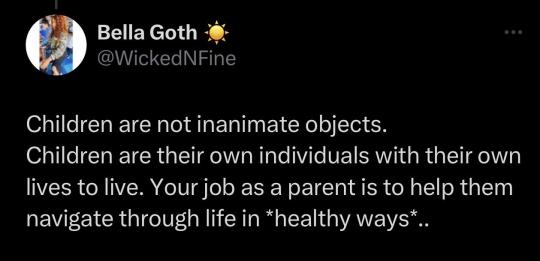
To add; "They left out that children aren’t your purpose in life. They shouldn’t give your life meaning. That’s something you should have already had."
Tweets and this comment found on Reddit.
#toxic parents#toxic parent#cptsd meme#cptsd memes#ptsd meme#ptsd memes#meme#memes#cptsdhealing#living with cptsd#cptsd vent#cptsd problems#cptsd thoughts#actually cptsd#just cptsd things#tw cptsd#actually ptsd#cptsd tag#cptsd#c ptsd
539 notes
·
View notes
Text
"The guilt that people feel about what their parents may have gone through is a classic symptom of being an adult child of emotionally immature parents. They go over the boundary of what is their responsibility, worrying about the feelings and the needs and the life of other people because thats what emotionally immature parents teach their children to do. They teach their children to take care of them and to be worried about what other people need. The parent has not matured to the point where they can take care of themselves let alone a child. They're demanding that from their children, so its not surprising that the child would end up feeling guilty about any that distress the parent, and feel responsible for that because thats what their childhood would be set up to do."
Lindsay C. Gibson, PsyD
#my text#actually traumatized#actually abused#actually cptsd#emotionally immature parents#tw parental abuse#cptsdhealing#cptsd recovery#that describes me and my parents to a T#I always feel guilty or worried about what my parents may have gone through#parentification
312 notes
·
View notes
Text

for those folks that run across this post and feel some kind of way about it, i'm sorry. those that find this post resonates with them, remember, no one is owed your gratitude and forced gratitude isn't gratitude at all.
i'll let the tags do the rest of the talking.
#junk journal#baked tarot#collage#journal#art journal#use the stickers#junk journal july#cptsd life#cptsdhealing#toxic positivity#forced gratitude#chronic illness#fibromyalgia#religious trauma
340 notes
·
View notes
Text
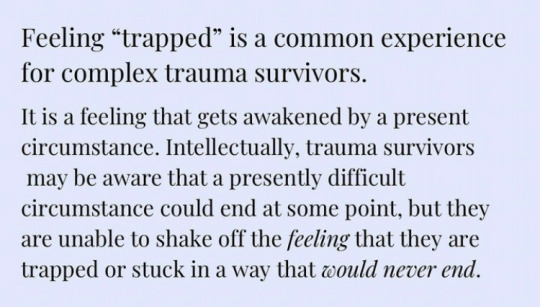
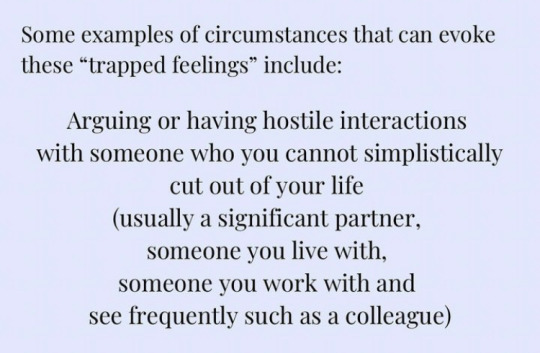
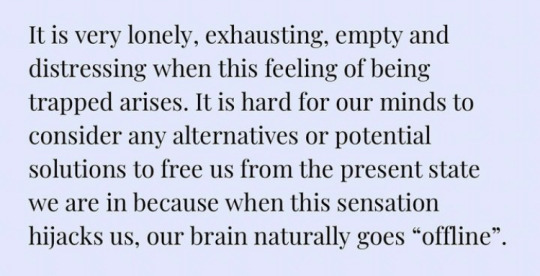

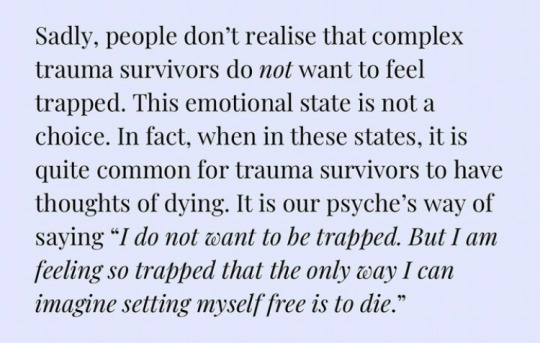
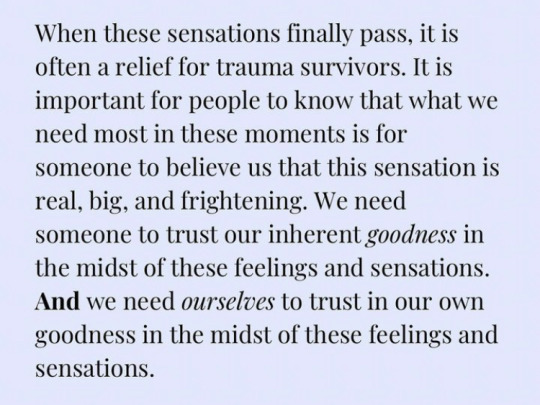
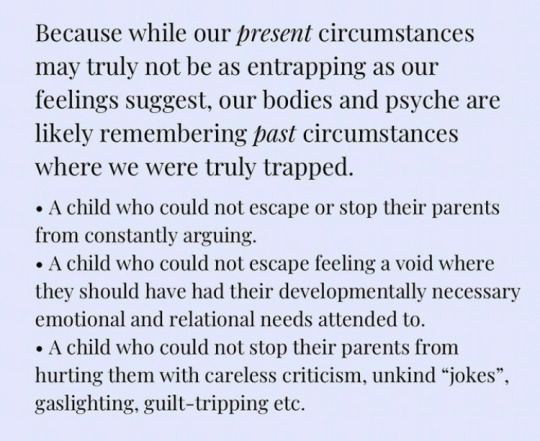
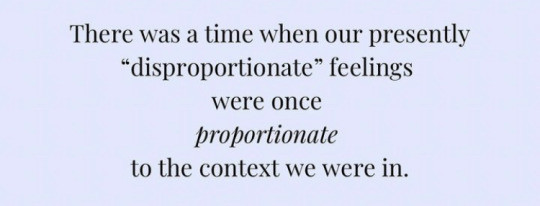
Source: @jeanpsychologist
#mental health#cptsd#cptsdhealing#living with cptsd#cptsd coping#cptsdsupport#cptsd recovery#complex post traumatic stress disorder#trauma recovery#trauma response#self compassion#overwhelmed#emotional dysregulation
523 notes
·
View notes
Text
The Kind Parent + Self-Soothing
#actually cptsd#cptsd recovery#cptsdhealing#living with cptsd#mental health#mental health matters#positive#pysochology#self care#positive mental attitude#mario bros#the kind parent#self soothing#mental health recovery#mental illness#mylistenr
67 notes
·
View notes
Text
Trauma is so fucked up. Like cool, imma just feel like a small child who needs to hide for no reason at all.
Can I cancel my subscription?
340 notes
·
View notes
Text
as you grow into yourself as a young adult and leave your childhood home behind, it is crucial to remember that the way you were treated there is not necessarily representative of how others will treat you.
as children, we often believe our parents mirror what the world is like, and we begin to subconsciously understand their worldview and behaviors as commonplace and normal — as what everyone must be like. but if your home was not a safe place for you (whether that be physically and/or emotionally), it is imperative that you unlearn that way of thinking.
it was your parents who treated you cruelly, not the world.
it was your parents who made you feel like shame would always be your most powerful emotion, not the world.
it was your parents who never loved you the way you deserved to be loved, not the world.
this world and the people in it are so much kinder and gentler than you were made to believe as a scared, lonely child hiding in your bedroom. allow yourself to accept that kindness without shying away from it for fear that you don’t deserve it, for fear that you didn’t earn it. you don’t need to earn love — you never did. and you have always deserved it.
#went home for the weekend#felt like returning to the scene of a crime#not sure if home is the right word for it anymore either#coping#coping mechanism#healing#childhood trauma#attachment issues#anxious attachment#toxic shame#self hatred#parental issues#family trauma#cptsdhealing#cptsd problems#living with cptsd#cptsd vent#actually cptsd#just cptsd things#actually traumatized#childhood ptsd#complex ptsd
127 notes
·
View notes
Text

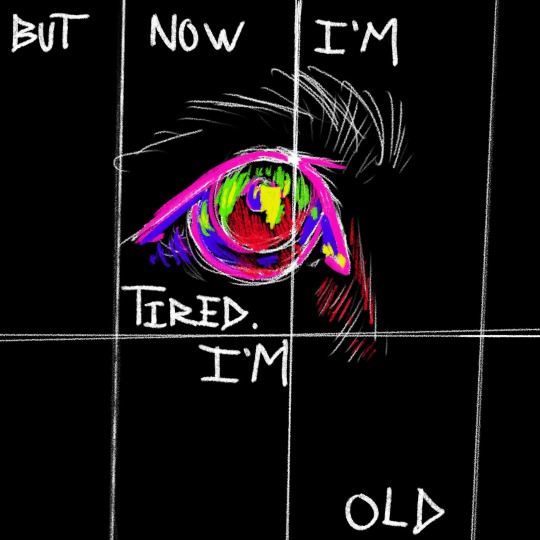


[SURVIVAL MODE]
#horror aesthetic#glitchcore#horror#horrorcore#spooky#eye strain#eyestrain#tw eyestrain#tw eyeballs#eyes#werewolf#neon colors#vent#actually autistic#cptsdhealing#coping#vent art#my art#audhd#borderline
268 notes
·
View notes
Text

#complex trauma#trauma#traumatized#childhood trauma#cptsd memes#ptsd culture is#actually cptsd#cptsd problems#cptsdhealing
181 notes
·
View notes
Text
Healing attachment styles:



When you have an attatchment style like anxious especially or even detatched/avoidant, or even disorganized you may fall into karmic cycles and habits that pull you to love someone wholeheartedly (or in some cases be infatuated with someone,obsessive, or attatched) who you know on a subconscious level isn’t going to fulfill your needs or isn’t able or capable of giving you what you need out of a relationship. You may desire true love, you may desire deep connections, true intimacy, passion, safety, etc. and all of these wonderful things BUT the love and attention you’re used to receiving (even on a fundamental level because attatchment styles are developed early) isn’t what is going to meet your needs. And your idea of what love or what it means or be valued or desired is skewed or warped. So, now when you’re presented with a healthy individual who is capable of caring for you and capable of giving you what you need, you may run from that person or find yourself uninterested or unable to connect with them. But, you are familiar with unhealthy relationships and behavioral patterns and so when presented with those, you find yourself easily attached or feeling some semblance of safety or belonging in those connections.
Start potentially thinking about what types of things you want or desire in your relationships. Don’t pass judgment on yourself or on these things just yet, just reflect. Be honest with yourself. Think about your ideas about what it means to love and be loved as well.
Try to identify what type of attachment style you may have. Look into the attachment styles, think about your parents and the way they handled you as a child or in your youth, etc.
Start thinking about what types of things trigger you or make you feel unsafe or uncomfortable in your relationships. (People canceling last minute plans, being left alone, when you start to become close with someone, etc.)
Ask yourself why these triggers may exist. There’s always a root cause of something you’re feeling however small it may seem on the surface. (Example: you may have a tendency to withdraw when things become serious or when you feel close to someone or when things are going well within a connection. This reflects a fear of deeper commitment or deeper vulnerability and connection. If you are open and receptive, your person may abandon you, may hurt your feelings or may decide to leave you and you don’t feel prepared to deal with or feel the emotional consequences of a situation like that.)
Learn how to be reflective and how to identify the way you feel. Easier said than done for most. But it helps to begin this journey with yourself first, you can practice journaling or sitting with yourself to reflect on how you feel and identify how you feel. If you don’t know how you feel right away when a situation arises, that’s okay, give yourself a moment to come to a conclusion and reflect. (Maybe you feel embarrassed, maybe you feel shameful, maybe you feel guilty, angry, sad, etc.) when you find out how you feel, you can begin to ask yourself why.
You can begin to learn how to communicate with others now. This part is difficult too. You may have to overcome a fear of vulnerability, a fear of rejection, a fear of being misunderstood, a fear of burdening others with your emotions/needs. When given a situation where you feel some kind of way in a connection whether it be platonic or romantic, you can take small steps by learning how to set boundaries, by making sure you tell people what you dislike or what you may feel hurt your feelings or made you feel uncomfortable about their behavior (AFTER you reflect on how you feel, during this process, it’s important you learn to be proactive instead of reactive.) in order to communicate effectively, you must see yourself clearly first.
Healing an attachment style is a big feat, it’s not an easy task, there will be moments where you’ll have to identify if you’re triggered or if someone has intentionally caused you harm or has mistreated you, you’re going to have to be able to communicate through that and be able to self reflect and be still for a while whilst you ground your energy and come to terms with your feelings.
There will absolutely be moments where you may make the mistake of accepting bad things or you may fall into karmic cycles or be tempted by people and things and you’ll need to think about what you deserve vs what you feel pulled to from a wounded aspect of yourself.
There will be moments where significant others in your life like partners and especially parents are people you’re going to have to hold accountable or take off of a pedestal and see honestly.
***
The emotion wheel:
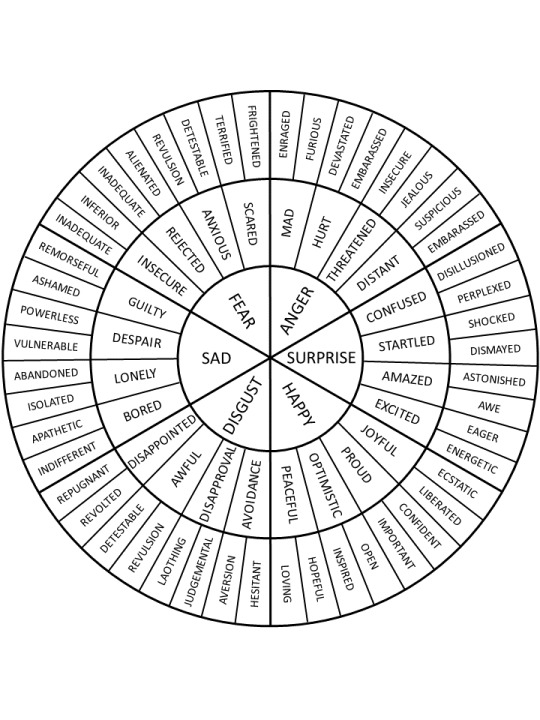
Attachment style chart:

#self love#self care#self improvement#self discovery#dream girl#self expression#healingjourney#self healing#manifestation#divine feminine#divine masculine#karmic lessons#karmic relationships#generationalhealing#cptsd#cptsdhealing#anxious attachment#avoidant dismissive#disorganized attachment#secure attachment#love#relationships#healing#childhood healing#inner child healing
37 notes
·
View notes
Text
MASTER-POST: Psychological Abuse Terminology
Parentification: A form of role reversal, in which a child is inappropriately given the role of meeting the emotional or physical needs of the parent or of the family’s other children. There is emotional parentification and instrumental parentification.
Intrude and Interrupt or Enmeshment: The manipulator has no respect for another person's boundaries, they will say and do whatever they please in front of, behind the back of, or towards their victims, regardless of objections or morals. If done covertly the victim will have no idea what damage has been done until it’s too late. The goal is to cut the victim off from speaking up, gaining support, or making positive changes, either for themselves or the people around them.
Infantilize: The manipulator does not acknowledge their victims maturity either emotionally or psychologically. The victim is treated as if they have no knowledge of life or experience dealing with life's challenges. The goal is to reduce a person to that of an infant or child, lowering their status in the social order, and stripping them of the ability to make choices, both in the victim's mind and the manipulator's. Abusers who successfully infantalized you and kept you behind your peers in life will then use your trauma symptoms as an excuse to say, “see you are childish and can’t do this in your own, here let me do it for you” thus continuing to treat you younger than you are and keeping you in this cycle. This keeps you in a childish state against your will, sometimes living under a rock, or not knowing things people your age should know - but this goes for all complex trauma survivors as well.
Dog whistling or Double Entendres: It can be used to set the victim up to look hysterical, it is a coded and suggestive language that only the victim will understand the true meaning of. Used to abuse the victim in a covert manner. It is a statement your abuser uses with double meaning to be able to abuse you in front of others or just play mind games with you to make you lose your mind. Abusers tend to use “double entendres” to secretly cover abusive language. (Google the definition of double entendres).
For example: with the dog whistle tactic my abuser used on me, that my abuser would tell me and other people, “I fucked a girl so hard she had an asthma attack!” My abuser gloated to everyone she knew about how she hooked up with some chick and fucked her so hard that the girl ended up having an asthma attack my abuser thought this was cool to gloat about - this didn’t actually happen; The true hidden meaning behind that statement was that she and her friends gang raped me and I woke up (from being drugged) having a panic attack and hyperventilating that someone handed me an asthma inhaler and it worked and stopped the panic attack. My abuser told me in private she was telling everyone she knew and gloating about raping me with that double entendre.
DARVO: Deny abuse allegations, Attack the victim, Reverse Victim and Offender role. The abuser pretends to be the victim of abuse while vilifying the real victim, and making them out to be the abuser.
Projection, Deflection, Denial: Projection is when the abuser accuses the victim of what they’re actually doing, this is chronically used as a part of the personality pattern of psychological abusers. If the abuser is cheating, they will accuse the victim of cheating. Deflection is when the abuser brings up things the victim “did wrong” when the victim rightfully confronts the abuser about their abusive actions or brings up something the victim supposedly did to take the blame or eyes off the abuser. Denial speaks for itself, when the abuser denies things when the victim confronts them, even when the victim has irrefutable proof.
Insinuating Comments: The manipulator knows the victim's weaknesses and buttons. They purposely push and pull on these to get a reaction. Often they will speak with double entendres or innuendos to confuse and hurt the victim simultaneously while maintaining plausible deniability of any hurtful intention. The goal is to drain the victim emotionally, wear them down, and to feed the manipulator’s ego or sense of power/control.
Feigning Innocence or Confusion: The manipulator tries to suggest that any harm done was unintentional or that they did not do something that they were accused of. The manipulator may put on a look of surprise or indignation. The manipulator may also try to play dumb by pretending he or she doesn't know what the victim is talking about or is confused about an important issue brought to their attention. The abuser may pretend to not know certain people they’re using to help abuse their victim, this is why the abuser has public friends and private contacts. The goal is to make the victim question his or her own judgment and possibly their own sanity. When others are deceived by a manipulator this way the victim feels powerless.
Triangulation
There are 4 main types of triangulation recognized. It is a situation in which one family member or friend will not communicate with the victim, or will be friendly with the victim, while turning other family members or friends against them. This can take many forms and usually incorporates gaslighting. There is always a covert element which leads to pitting the victim against others without the victim being fully aware of what is taking place. The goal is to isolate (divide), and conquer the victim while controlling their support system.
Killing Two Birds With One Stone:
To obtain control, attention or adulation, abusers will often inform their partner about a third-party such as a mutual friend or co-worker, etc., who has been flirtatious with them. This third-party person is brought into the relationship to kill two birds with one stone! First, it stirs up feelings of jealousy and insecurity in their partner and subtlety warns the partner that they’re replaceable. Instinctively the partner tries harder to please the abuser so as to not be replaced. Second, it creates an illusion of desirability and encourages rivalry, both of which fill the abuser with abuser-supply, adulation and control. So not only does the abuser get their dose of supply, they also increase the amount of power they have over their partner. Psychological abusers are obsessed with jealousy and envy to feed their insecurities and lift their self-esteem. Power is the way they go instead of looking for healthier alternatives to make themselves feel better; it’s just how they are wired. They’re wired for drama, power, control, and chaos.
Recruiting Reinforcements:
One of the ways abusers use triangulation to manipulate their partners into siding with their point of view or acquiesce to their wants and needs is by using third-party reinforcements to substantiate their opinions. This is a form of recruiting allies when taken to the extreme is a form of bullying. The abuser tries to manipulate anyone who may hold a different opinion or belief by using the help of a usually innocent third party, which of course, has only heard the abuser’s rendition of the truth.
The third-party is usually oblivious to the abuser’s ploy and believes they’re only trying to help the abuser. Usually, their party is a relative or one of the members of the abuser’s supporters that the abuser uses as a tool to help settle differences and coerce their partner or anyone else into accepting their viewpoint through the use of persuasion, embarrassment, majority rules or guilt.
Splitting:
This method of triangulation involves pitting two people against each other. The abuser does this by smearing the character of one or both of the people behind their backs. This enables the abuser to preserve their false image and ensures they’re viewed positively among the triangle. In many instances, the abuser will portray themselves as the victim, especially if they feel their partner is growing tired or aware of their manipulation, hypocrisy, and abuse. The abuser will react by planning their partner’s discard by starting a full-fledged smear campaign behind their back. So by the time they dump their partner, the abuser already has a circle of blind supporters.
The abuser will usually seek supporters that he/she knows will always agree with them no matter what. This is how they set up their partner to look like the abuser in the relationship long before the relationship is over. For this to work, the abuser must keep the supporter(s) and partner from sharing information, so the abuser will usually share mean comments each has said about the other.
The abuser uses this triangulation tactic to control the information shared between the parties providing the abuser with the power of being the primary contact person and transferer of information. Since everyone is communicating through the abuser and not with each other, the abuser can further their agenda by relaying their spin on the information between the parties.
The Pre-Discard and Dump:
When the abuser is about to break up the relationship they will confide in people who they know will agree with them and believe their rendition of the truth. Sometimes they will confide in people who hardly even know their partner, if at all. The abuser will make sure to let their partner know that they have been confiding in other people, and every single one of them agrees with the abuser. Most likely, one of the abuser’s confidants will assume the role of the replacement partner.
After the break-up, the abuser will openly brag about how happy they are with their new partner or make social media posts about it. And if their ex-partner acts jealous or tries to beg them back, the abuser will enjoy the new bonus love-triangle of their own creation. Abuser’s do this to always look good, happy, or like they’re doing their best while trying to tear you down.
Enticing the victim back or Hoovering: Is trying to use any means to get the victim to come back to the relationship. Threats, intimidation, guilt-tripping, love-bombing, enticing, making false promises of change, anything.
Blame-shifting: The victim is held responsible for the harm they suffered. The victim brought it all upon themselves and the manipulator is in no way responsible for their actions. The victim made all the choices which brought them trouble or pain regardless of how much they were manipulated into doing so. The goal is to put the victim on the defense which makes them look and feel guilty while simultaneously masking the manipulator's malicious intentions.
An abuser will blame-shift everything, even the littlest mistakes they’ve made, making themselves out to be perfect beings with no faults or flaws - obviously this disrupts the relationship and causes fights when there’s no accountability on the abusers end whatsoever.
Abuse by Proxy (or Flying Monkeys): This is when the abuser will enlist their friends or people to come after the victim and attack the victim, abuse the victim, or intimidate the victim. Abusers befriend abusers, abusers support abusers. This stage is usually after the break-up when the abuser is trying to get their “revenge” on you.
Love Bombing: Is an attempt by the manipulator to influence a person by lavish demonstrations of attention and affection. The manipulator appeals to the target’s vanity and insecurity. Their interest in the victim will be extreme once they have found their target and their “love” for the victim will be incredibly intense. Its purpose is to override the target’s critical thinking skills so that the abuser can control and manipulate. Essentially they will gain control over their victim by making their emotional state dependent on the manipulator. The abuser will act closer to you than they are given they only just met you, bomb you with loving gestures and affection which gets you easily attached (not real love).
Devaluing: This is the part of the cycle where the abuser does the complete opposite of love-bombing, they may rage, put down the victim or use any means to make the victim feel unloved. Relationships with psychological abusers are very black and white, it goes from love to hate in an instant and back again. Mental whiplash some people call it.
Gaslighting
Is a form of mental abuse in which information is twisted or spun, selectively omitted to favor the abuser, or false information is presented with the intent of making victims doubt their own memory, perception, and sanity. Typically this undermines the victims support group carried out by a combination of other tactics synthesized into a large scale attack on said victim. Making the victim deny the reality they know to be true. Often the abuser is sure of themselves and the victim since the beginning of the relationship has been in a constant state of confusion and questioning themselves. There are many types of gaslighting and ways to gaslight.
Physical Gaslighting. You see this in the 1944 movie Gaslight. The gaslighter will physically, and ever so slightly, distort your surroundings repeatedly and deny repeatedly that anything has changed. In the movie the man is slightly turning down the gas-light in their bedroom a bit dimmer and when his wife asks if the lighting has changed, he denies it and calls her crazy. He does this constantly to get the outcome he wants from his victim.
Emotional Gaslighting. This obviously uses non-physical means to gaslight the victim. Ofen making the victim believe things about themselves that aren't true, like making them out to be the abuser for example. Denying events from the past (days, weeks, years) happened a certain way that the victim remembers it happening and calling the victim crazy, delusional, mentally ill, or telling the victim they are dreaming, manipulative and making stuff up. The abuser then asserts their rendition of the truth and a lot of the time adding details that never happened and asserting that they happened.
Minimization: This is denial coupled with gaslighting. The manipulator asserts that their behavior isn't really as harmful or irresponsible as someone else may be claiming. Often times down playing the behavior by comparing it to others, "He who is without sin among you, let him be the first to throw a stone," or such logic may be present. The goal is to make a molehill out of a mountain, thus letting the manipulator continue the abusive behavior, or at least escape much of the guilt. They act like they don’t see the impact their actions have on others, sometimes they really don’t see it because they’re not reflecting on things they don’t care about.
Amplification: The manipulator will shout out your failures and whisper your successes. Any limelight the victim deserves will be diminished. Their accomplishments will go unnoticed and their shortcomings will be broadcast far and wide. The goal is to drain the victim of the energy to be successful, to make them doubt themselves, so that the manipulator can be the center of attention at all times while belittling the victim.
Emotional Blackmail: Knowing that someone close to them wants love, approval or confirmation of identity, and self-esteem, manipulators will threaten to withhold the emotional support the victim desires or needs, or even take it away altogether, making the person feel that he or she must meet the demands of the manipulator. The goal is to ensure that the victim feels afraid to cross them, obligated to give them their way, or guilty if they resist.
I’ve also seen this in terms of witchcraft/black magick in which the abuser will insist demons or gods have been used to help get revenge on the victim as a kind of deluded “divine retribution” against the victim. I’ve surprisingly heard a lot of stories of people’s abusers using black magic as a threat to their victims. This is blackmailing. All in all, wanting to do vengeful or abusive things using magic to make oneself feel more powerful is a huge red flag.
Monitor and Stalk: The manipulator is always present, lurking behind the victim's back, or from a good safe distance, keeping an eye on him or her. It is common for them to monitor the victim's computer or phone, and even use surveillance equipment in order to follow the person's every move. The goal here is simple: maintain knowledge of everything the victim says and does, their coming and going, and who they know. Check your vehicles for tracking devices, they can be under the car, behind a license plate, in the engine blending in, in the wheel well, or behind one of the tires, in the trunk, or even inside the car under the seats or under the dashboard area.
Personality Traits/Patterns
Vindictiveness: This is a disturbed personality trait that all psychological abusers possess. They are extremely revenge-prone, incredibly abusive with their revenge, and often entitled and self-righteous with their revenge. They believe they have a right to abuse the victim that they perceive as deserving of abuse. Often perceiving things in a cognitively distorted manner (research terms: cognitive distortions, distorted object relations).
Deceitfulness:
Public and Private Personas: Psychological abusers are notoriously known for having a public personality that they may show around school, their unaware friends and family, and a private personality that they unleash who they really are around other abusers or victims of theirs. Victims and other abusers are the only ones that see their private personas.
Tracfones and aliases: An alias is a fake name and identity they go by to get away with their abusive behaviors. Tracfones are also known to be used to get away with crime.
Charm: Charming behavior is used obviously to charm people and get people to like the abuser. Abusers are typically good at charming anybody they come across because it also helps hide their abusive personality.
Cognitive Distortions. A cognitive distortion is an exaggerated or irrational thought pattern. Cognitive distortions are thoughts that cause individuals to perceive reality inaccurately. Abusers rely on cognitive distortions to justify bad or aggressive behavior. One example of how they distort reality is mislabeling a person as stupid or useless because they don’t know what the abuser knows; this is a pathetic attempt for the abuser to lift their self-esteem by feeling superior to others. Another example of a cognitive distortion is mislabeling a person's identity we see this with:
Distorted Object Relations. The abuser tends to relate to others primarily as objects to satisfy their own needs and desires, rather than seeing them as unique individuals with their own feelings and perspectives.
Victim Complex. The abuser is a perpetual victim and sees themselves as victimized when they often are not being victimized. They enjoy taking on a masochistic role where they perceive themselves as being attacked or offended where there is no offense in reality, giving them ample opportunity to perceive the real victim as the bad guy so they can cause chaos and drama to fuel their abuser-supply. The cycle of abuse is called the cycle of abuse for a reason; they cannot get out of the victim role.
Pompous, Pretentious, Posers and Fake. They cannot be anything but arrogant, liars, exaggerators, making up almost everything about their character to portray themselves as a certain person, or with a certain job or degree or having certain relationships or status that they don’t actually have. We see this in a lot of famous DV cases such as “Dirty John” on Netflix which is a true story of a woman and her daughter’s DV case. We also see this with murderer, Brian Blackwell, who tried to keep his facade of a character he wasn’t up to the point where he snapped and murdered his parents, all over the fact that he was fake and needed to upkeep his perfect image to his girlfriend. Lies are a red flag. Slight exaggerations are a red flag.
Foreshadowing. This is when the abuser plays mind games or drops hints that they’re abusive (it is also a way to shift blame onto you for accepting the abuse and to gaslight you or intimidate you because they “warned you about how they are” when the relationship started.)
Crisis situations. If they have an addiction for example, which is the common one I always hear about, they’ll constantly use it to keep you smothered in their presence, there for them, ect. they will “accidentally” leave pills or a needle where they know you’ll find them so you freak out/stress and so you can be there for them. This is also a part of smothering/enmeshment. Abusers don’t know the difference between their responsibility and yours. If you’re going away on vacation, if you’re going out with friends, if you’re doing anything by yourself or with loved ones and the abuser will immediately have a crisis situation for you to come back running to them or else “you don’t care about them” because you aren’t taking care of their responsibilities.
Framing. They will frame the perfect story over the course of years or decades depending on how long you knew the abuser for. I call this simply “framing”. It’s when the abuser frames you for specific problems or for abuse from the very beginning of when the relationship first started.
Double Bind: In the manipulator's eyes the victim is damned if they do and damned if they don't. Regardless of which choice is picked the manipulator will always point out that the person should have picked the other. This may be accompanied by remarks such as "Well if you had done this I would have done something great for you, but forget about it now." The goal here is to beat the victim down psychologically and emotionally, in order to make him or her question and doubt their own intuition and judgment.
Double-Mindedness: The manipulator seeks the double advantage of being able to do wrong, of being able to have their will, of letting their passions rage, and the hypocritical advantage of seeming to be good, helpful, or supportive. In short, double-mindedness is to say one thing and do another, to do unto others what they are not willing to be done unto them. The manipulator can only accomplish said task by engaging in the self deception of doublethink.
Doublethink: To know and not to know, to be conscious of complete truthfulness while telling carefully constructed lies, to hold simultaneously two opinions which canceled out, knowing them to be contradictory and believing in both of them, to use logic against logic, to repudiate morality while laying claim to it, to forget whatever it was necessary to forget, then to draw it back into memory again at the moment when it is needed, and then promptly to forget it again, and above all, to apply the same process to the process itself.
Hurt and Rescue: A drowning person will clutch at a straw, so push them in the water, then throw them a rope. Hurting the other person does not necessarily mean physical harm and it may not even mean making them feel bad, but it does mean creating a situation that they want to resolve. The goal is to get the victim to play into the manipulator's hands so they can rush to their “rescue” only to trick the victim into trusting, believing, or becoming dependent upon them. The abuser sets up a problem, the victim is hurt, then the abuser rushes to their rescue as the hero.
Covert Aggressive Abuse: Insults are disguised as teachings, helping, giving advice, and offering solutions. The manipulator makes them appear as a sincere attempt to help, especially to others. This can also be followed by put-downs, and disappointment from the manipulator and anyone else who they have convinced of the victim's inferiority. The goal is to belittle, control, and demean the victim while covering up the appearance of wrongdoing on the manipulators behalf.
Setting up to Fail: The manipulator puts their victim in such a state of stress, or stressful situation, that failure is almost certain, wherein the outcome can be used as ammunition to discredit and blame the victim. This can be done covertly as well, using sabotage or undermining an objective that may otherwise have been achievable. This type of manipulation may be the projection of the bully's own feelings of inadequacy onto the victim.
Moving the Goalpost: When the manipulator has control of the situation they will redefine the victim's goals, in reality, to intentionally devise a way so as to assure that an athlete, for example, will ultimately never be able to finally achieve the ever shifting goals. Depending on how this is done the goal may be to humiliate the victim, keep them preoccupied so as to accomplish nothing else with their time, or to simply wear them out.
Brandishing Anger: The manipulator puts on an act of furious explosive anger, verbal abuse, or physical threats. If the victim is in a trance or has previously been manipulated by the abuser, with just one incident of such behavior the victim can become conditioned and trained to avoid upsetting, confronting or contradicting the manipulator ever again. The goal is to establish dominance or superiority, and complete and unquestionable compliance, over victims through fear.
Brainwashing: Also referred to as heart washing, is the act of changing a person's mind or heart by using extreme mental or emotional pressure or abuse. This is typically done when the victim is extremely outmatched by their manipulator either mentally, physically, economically, or socially. This can be achieved a number of ways but usually the victim is in a situation they feel they can’t escape, and will involve several tactics simultaneously. The goal is to convince the victim into believing their viewpoints about life, believing their view of certain people or a specific person, or something else and that the victim needs to be realigned to the viewpoint of the manipulator.
Insinuating Comments: The manipulator knows the victim's weaknesses and buttons. They purposely push and pull on these to get a reaction. Often they will speak with double entendres or innuendos to confuse and hurt the victim simultaneously while maintaining plausible deniability of any hurtful intention. The goal is to drain the victim emotionally, wear them down, and to feed the manipulator’s ego or sense of power/control.
Silent Treatment: The manipulator refuses to communicate and uses emotional and/or physical withdrawal as punishment. This is to convey contempt and communicate that the person is not worthy of the manipulator's acknowledgement. The goal is to render the victim powerless to change the current situation and induce feelings of abandonment or rejection. If the manipulator withdraws emotionally the victim can become love starved for their affection/attention.
This is different from Gray Rock which is a technique victims in abusive relationships can use to not engage with the manipulative person in their life. You’re doing it to avoid gaslighting, fights and the feeling like you’re going off your marbles, whereas the abuser uses the silent treatment as a way to gain power and control over you, usually because they’re pissed you’re not doing what they want.
Roles in a household
Scapegoating. Manipulators subject the "whipping boy" to constant negative treatment and blame they don't deserve. Manipulators unconsciously project their own unwanted feelings and problems onto the victim. The punishment which the scapegoat has to endure is a direct projection of the manipulator's own insecurities. Scapegoating is a deliberate act of torment against another person for the cathartic pleasure of the manipulator and their cohorts. The scapegoat is often blamed for all the problems that arise, they are most likely to have DARVO used against them (they are blamed to be the abuser by one or multiple abusive family members). A lot of the times when abusive parents (or even other family members) don’t want to take accountability for their mistakes they regret or don’t want people to know about, everybody can dump their projections and insecurities onto the scapegoat.
Golden Child. This is the kid who is looked at as the perfect extension of the manipulative parent(s). They fit the role of being perfectly exploited by a parent that seeks attention, adulation, and success. This child is used for the parents' need for a perfect image. This is usually the sibling that becomes the most successful but not always. They are typically the favorite kid.
Invisible Child. Usually completely ignored. The parents (and sometimes siblings are manipulated to do the same) never speak to this kid, and may genuinely completely ignore their existence. If there are 5 members of the immediate family and it is dinner time, the parents might put down 4 plates at the table, not call them to dinner and have dinner with everybody else, just to further control and ignore the invisible child. A lot of people's situations will be different in how they experience the role. This is one example.
#my text#actually traumatized#actually cptsd#actually abused#actuallyabused#actuallytraumatized#actually ptsd#cptsd healing#cptsd life#cptsd vent#just cptsd things#living with cptsd#cptsd tag#cptsd recovery#cptsd problems#cptsdhealing#cptsd thoughts#psychological abuse#psychological trauma#emotional abuse#emotional terrorism#domestic violence#domestic abuse#tw dv mention#actually bullied#bullying#entitlement issues#male violence#actually traumatised#terminology
59 notes
·
View notes
Text
just want to remind everyone that you're allowed to say "stop." Or "I need a minute", or "let me catch my breath". I forget myself sometimes and it's nice to have it affirmed. Honor your needs. 🖤
#healing#breathe#cptsdhealing#cptsd#audhd#audhd problems#affirmation#confirmation#friendly reminder#give yourself a break#give yourself grace
119 notes
·
View notes
Text
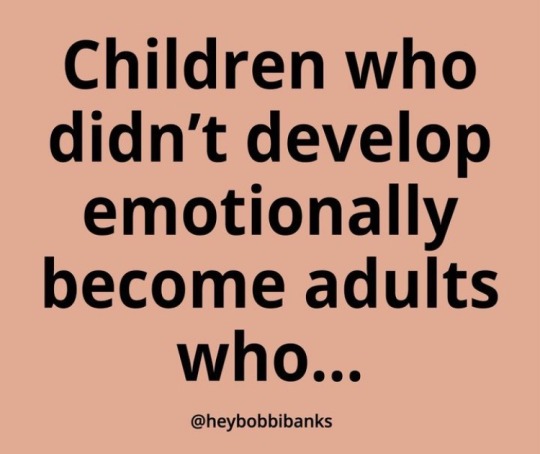







#mental health#cptsd#living with cptsd#cptsdhealing#self isolating#loneliness#low self worth#survival mode#mental health awareness#healing#recovery
379 notes
·
View notes
Text
You do not need to change or live up to anyone else's expectations. You are worthy of love just as you are. Don't let anyone convince you otherwise, including yourself.
146 notes
·
View notes
